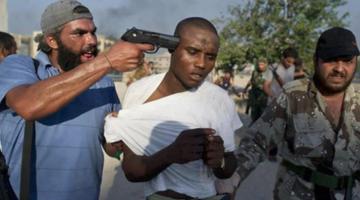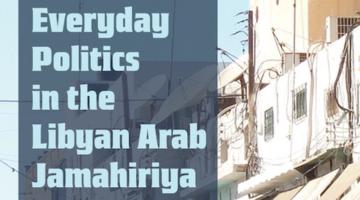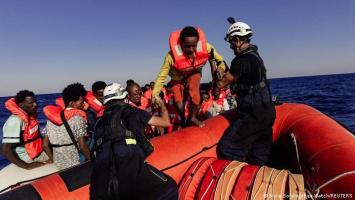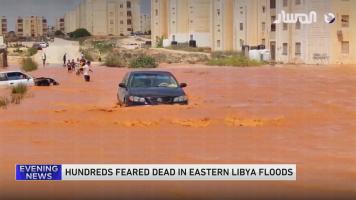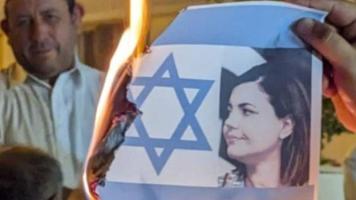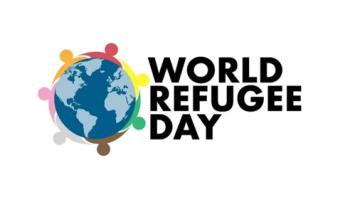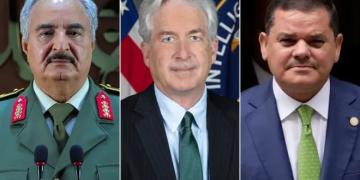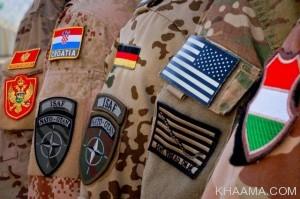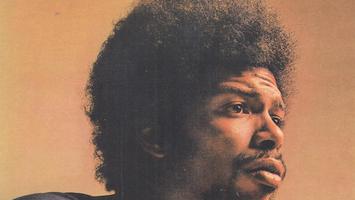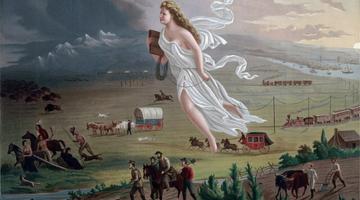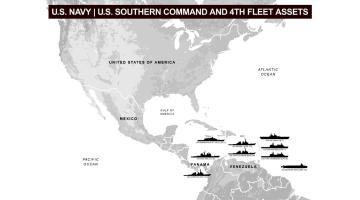The President of South Africa began his rotating month as president of the UN Security Council with a rebuke of the world body’s relationship with African states. “Although South Africa voted in favor of UN Resolution 1973 that authorized a so-called ‘no-fly zone’ over Libya, the action was clearly designed to engineer the destruction of the country and the overthrow of the government of Col. Muammar Gaddafi.” The UN claimed it acted to protect civilians, but “there was never any real evidence of the massacre of Libyan civilians by the Gaddafi government.”
This article originally appeared in Pan-African News Wire, of which Mr. Azikiwe is editor.
“Greater political coherence and a common vision between the African Union and the UN are critical in the resolution of African conflicts.”
President Jacob Zuma of the Republic of South Africa visited New York on January 12 to assume the rotating presidency of the United Nations Security Council. South Africa will hold the position for the month of January.
During his address at the world body, President Zuma criticized the UN for its stance that led to the eight-month war against the North African state of Libya. Although South Africa voted in favor of UN Resolution 1973 that authorized a so-called “no-fly zone over Libya, the action was clearly designed to engineer the destruction of the country and the overthrow of the government of Col. Muammar Gaddafi.
After the bombing by the United States and NATO started over Libya on March 19, South Africa and other African Union member-states demanded an immediate ceasefire and drafted a roadmap for national reconciliation inside the country. These efforts by the AU were rejected by the imperialist states and their allies, including the rebels who are backed by the western governments in Europe and North America.
Gaddafi was later assassinated on October 20, 2011, just two days after a visit to the country by United States Secretary of State Hillary Clinton who called for the Libyan leader to be captured and killed. No one has been held responsible for the execution of Gaddafi who was detained in Sirte alive and later brutally tortured and extra-judiciously killed by a mob of purported National Transitional Council (NTC) rebels.
The U.S. and NATO countries imposed a naval blockade on Libya, froze its foreign assets and carried out over 10,000 airstrikes against the country of six million people. Rebels in the NTC were recognized by the aggressor states and have been supported continuously in the absence of any democratic mandate from the Libyan people.
“No one has been held responsible for the execution of Gaddafi who was detained in Sirte alive and later brutally tortured and extra-judiciously killed.”
Zuma told the Security Council on January 12: “A problem which was confined to one country, Libya, has now grown to be a regional problem. The lesson we should draw from the Libyan experience is that greater political coherence and a common vision between the African Union and the UN are critical in the resolution of African conflicts.”
The South African president went on to note that, “It is important than an international organization like the United Nations take into account the realities on the local level when it takes a decision.” In response to Zuma’s criticism, the U.S. spokesman for the Washington’s representative to the international forum, Susan Rice, disagreed with the South African leader’s characterization of the Libya war.
Mark Kornblau, the U.S. spokesman for its UN mission said “The international action in Libya saved tens of thousands of innocent civilians from slaughter, and the subsequent overthrow by the Libyan people of a brutal dictator has inspired people across the region and the world to pursue their own universal human rights and freedoms.”
However, there was never any real evidence of the massacre of Libyan civilians by the Gaddafi government and the subsequent war by the U.S. and NATO resulted in the displacement of hundreds of thousands of people inside Libya, the deaths of thousands of civilians, the theft of the country’s national wealth to the tune of hundreds of billions of dollars and the installation of a dictatorial regime of armed rebels who have imprisoned at least 7,000 people without just cause.
Instability in Libya Continues
Meanwhile in Libya, clashes between various armed militias have resulted in greater insecurity and deaths. On January 13-15, clashes between rival rebel groups left two people dead and 39 injured in Gharyan, which is located approximately 50 miles south of the capital of Tripoli.
Despite repeated orders by the NTC rebel regime, the militias have refused to surrender their arms and join a newly-created national army. Earlier in January, a major conflict erupted in Tripoli when a group of militiamen from Misrata exchanged anti-aircraft and machine gun fire with other rebels claiming to be from the central section of the capital.
Divisions among the NTC rebels and other forces that opposed the Gaddafi government were revealed when 12 Islamist parties rejected a proposed electoral law issued by the western-backed government. The draft law published on January 2 was criticized by several groups saying that it would encourage tribalism and provide disproportionate influence to the wealthy sections of society.
“The country at the time of the imperialist-engineered war had over $160 billion in foreign assets and owed no money to the International Monetary Fund or the World Bank.”
In a statement issued by the so-called Forum of National Parties opposing the draft electoral law, it says that “The proposed electoral system does not lead to true representation of all sectors of society, instead it would produce a representation overwhelmed by tribal consideration and the influence of the rich.“ Wasila al-Ashiq, who is the leader of one of the parties called al-Umma, stated that “We should not be voting for x or y, but candidates should join a party with clear political objectives.”
Al-Ashiq noted that under the proposed system, “the larger tribes will gain all the seats and minorities such as the Berbers will be ignored.” The system that was overthrown under Gaddafi, known as the Jamahiriya, was based on people’s committees and local representation.
Libya, under Gaddafi’s rule between 1969 and 2011, rose to achieve the highest standard of living on the African continent. The country at the time of the imperialist-engineered war had over $160 billion in foreign assets and owed no money to the International Monetary Fund or the World Bank.
The former government had assisted in the national development of Libya which attracted two million guest workers and provided investments to other states on the African continent. Libya under Gaddafi had also been a strong advocate of the formation of a United States of Africa, an idea that was advanced during the 1950s and 1960s by the late Ghanaian President Kwame Nkrumah, who was also overthrown in 1966 by a CIA-backed military and police coup.
Several of Gaddafi’s family members were killed by the NATO bombings and rebel forces. His son and heir apparent, Seif al-Islam, is currently being held incommunicado by the NTC rebels at an undisclosed location inside the country.
Abayomi Azikiwe is editor of Pan-African News Wire, in which this article originally appeared. He can be reached at panafnewswire@gmail.com.

